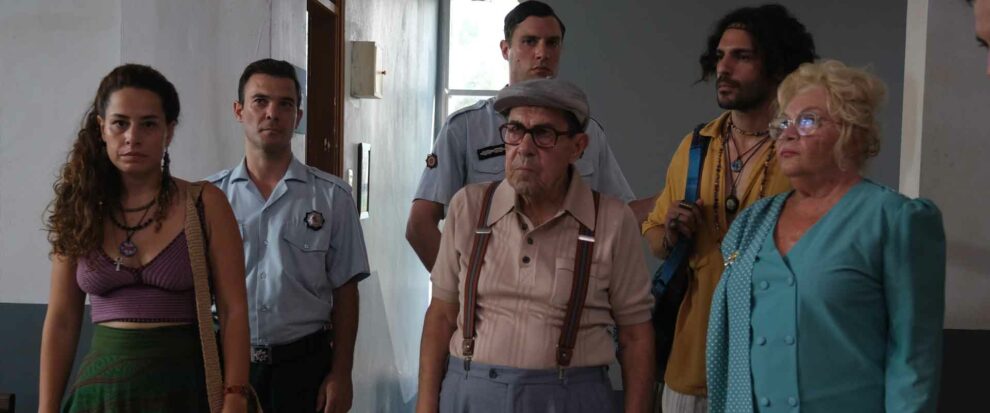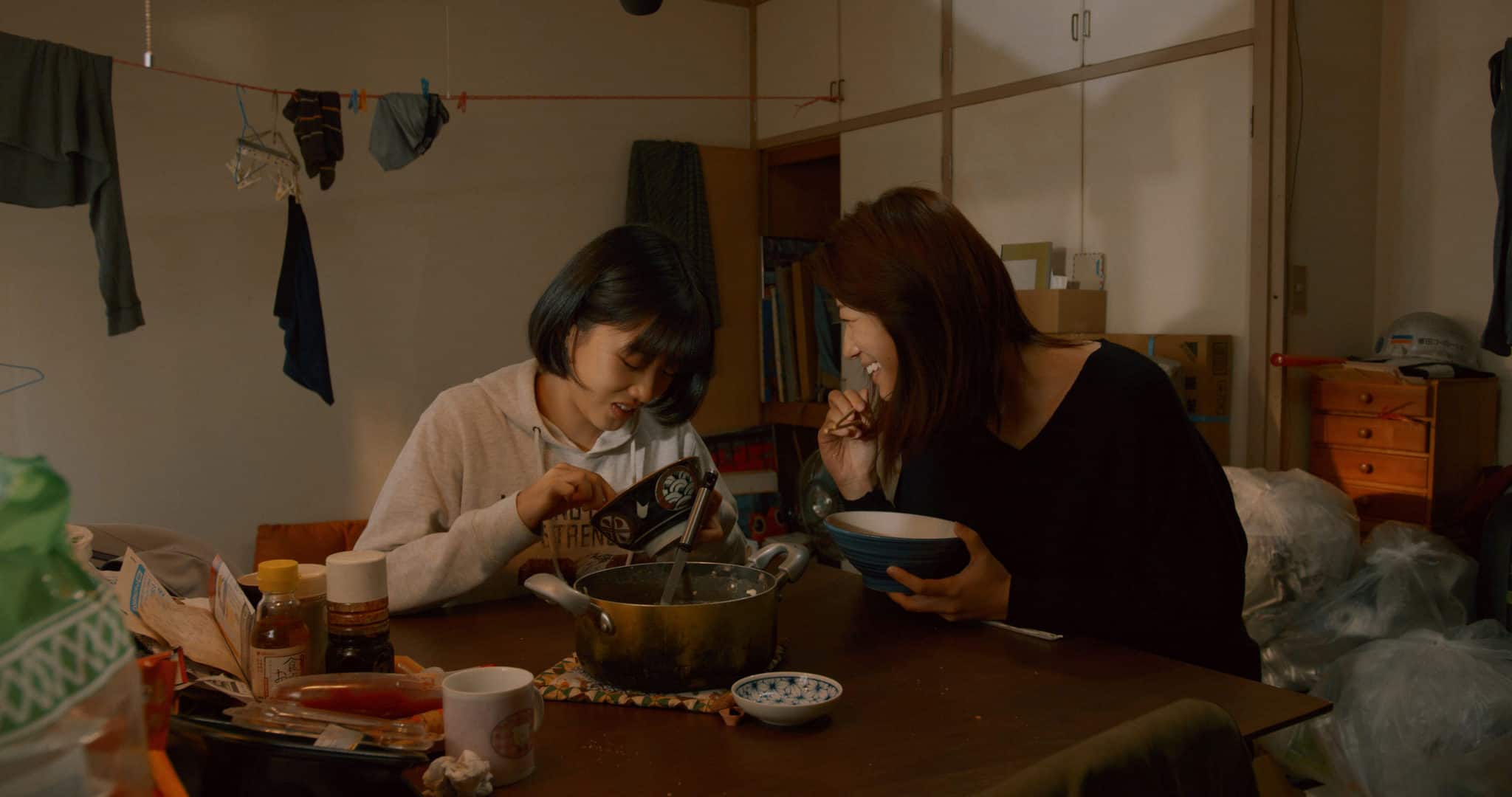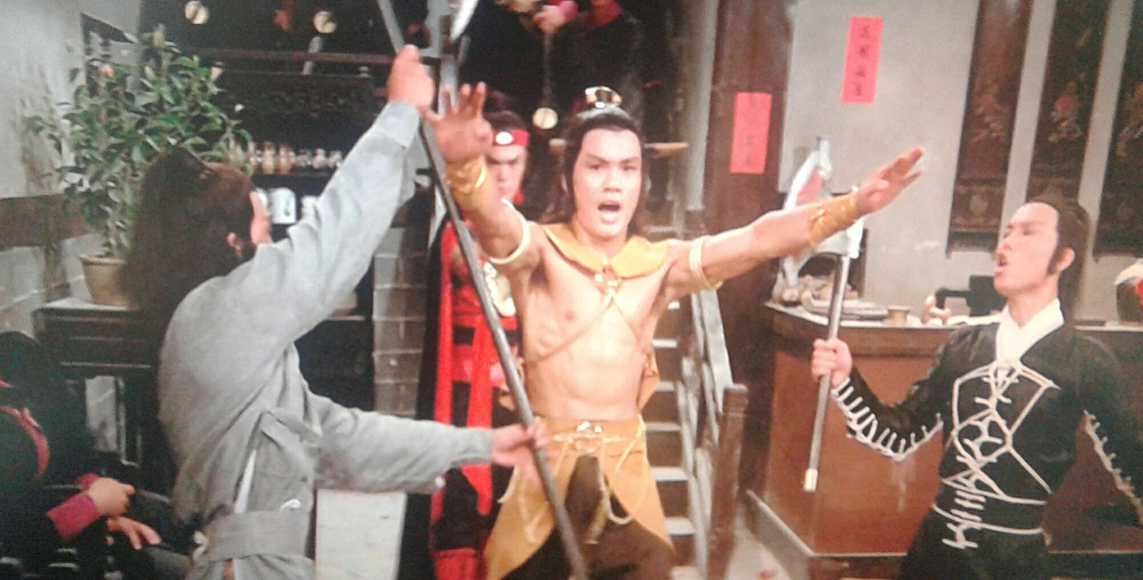Director of Istanbul Film Festival's first feature film, “Oregon” seems to be a trip down memory lane, not just because it takes place on a summer day in 1985, but because it evokes a nostalgia for the popular comedies of the 60s and 70s that were quite prevalent in both the Turkish and the Greek movie industry.
“Oregon“ is screening at Thessaloniki International Film Festival

The story begins with a couple of former filmmaker students, Hakan and Gaye, who are now operating a souvenir shop in Bodrum, vacationing in Istanbul. During their last day, they have to leave a mix cassette in one of their friends from school, Selen, but the fact that she has left for Cappadocia and the overzealous caretaker of the building, Durmus, result in a series of unfortunate events that end up with them in the police precinct. While there, they stumble upon a very friendly prostitute, who seems to have a connection with the director of the precinct, Sevket, who is having a very bad day as he is expecting to hear from his doctor if he has lung cancer. His mental state does not help the couple at all, with him considering the possibility they are terrorists, in another series of events that ends up with them asking help from some of their old friends from the film school. Again though, the situation becomes more complicated than they expected.
Unfolding somewhere between the situational comedy and the stage play, “Oregon” is a rather funny film that draws much from its writing, which, apart from being humorous, also makes some sociopolitical comments, which demand from the audience, though, to look quite deeper inside the movie to really “see” them. As such, in the period just after the junta in Turkey, police still seems to have a rather dominant role in society, but still fear insurgencies from the left. The way Sevket smacks immigrants and petty criminals in the precinct, and the way he treats Hakan and Gaye, who are perceived by the conservative part of Istanbul as hippies and potential terrorists, highlights the comment quite eloquently. Small scenes here and there, as with the retired officer who deals with senility, Durmus's life story and ambition, and the way the solution is given by a superstar, essentially beyond the law, highlight this approach in subtle (maybe with the exception of the last scene), but in the end, eloquent fashion. Lastly, Ayan seems to make a comment about how the movie industry works, in another aspect painted in rather dark colors.
The situational comedy, however, is the main element of the film, benefitting the most by both the writing of the episodes and the characters, with Umit Unal's script being one of the best aspects of the movie. Hakan and Gaye provide the center the story revolves around, and are quite appealing to watch, especially in the way the fight and make up, but the ones who stand out are actually others. Sevket in particular steals the show every one of the many times he appears on screen, with his frustration for both his medical situation and the cases he has to deal with in the station being one of the best traits of the movie. Ferit Aktug in the role is a treat to watch throughout the movie, in probably the best part of the whole thing.
The second quite appealing performance comes from Onur Gürcay as Durmus, whose general attitude, of taking his job too seriously and the way he despises the “hippies” in a way that leads to a clash being as funny as it is meaningful. The moment he breaks is another of the movie's zeniths. Lastly, Melisa Dogu as the kind prostitute is also quite funny and appealing overall, adding a sense of both drama and comedy in a way that reminds of many similar characters appearing in the movies of the 60s and 70s.
At the same time, though, and although the individual elements of the movie are on a quite high level, the whole abundance of characters and situations does become a bit too much after a point, also because it is hard to empathize with so many, and be affected by so many episodes. Again, this was the style of the movies of the past, but in this era, where realism and “true stories” seem to be king, this approach seems somewhat preterit, with the movie ending up being somewhat tiring after a point.
Barış Aygen captures the various settings (stages one could say considering the theater-like approach of the movie) with gusto, without any particular exaltations, mostly allowing the events and the cast to shine. Hubert Hayaud's editing results in a rather fast pace that suits the overall aesthetics nicely, with the cuts occasionally becoming part of the humor.
Particularly for the viewer who will not discern the sociopolitical comments, “Oregon” will be one of those movies that you watch, have a good time, and then easily forget, even though the star cast does work against this. Ayan, though, knows how to tell his stories in both a subtle and an evident level, with the movie being a rather hopeful debut, particularly I feel, if his next projects turn more directly towards the political.















